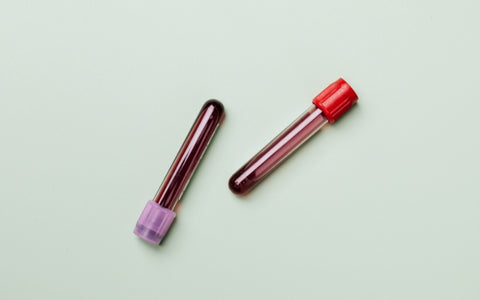Let’s talk about something super common but not often discussed… constipation. It’s uncomfortable, makes you sluggish, and can completely throw off your day. It affects millions of people, young and old, and it’s one of the top digestive complaints around the world.
The good news? There are plenty of gentle, natural ways to support your gut and get things moving again. Your digestive health plays a big role in how you feel overall, so taking care of it is a great step toward feeling your best.
What is constipation?
Constipation refers to difficulty passing stools or infrequent bowel movements. It is a common issue that affects both adults and children, often leading to a range of uncomfortable symptoms. These may include bloating, stomach pain, haemorrhoids, abdominal distension, lower back pain, fatigue, brain fog, weight gain, and even body odour.
While occasional constipation is something most people will encounter at some point, chronic constipation occurs when these symptoms persist for an extended period. This ongoing discomfort can have a significant impact on daily life, making even simple tasks feel burdensome and reducing overall well-being. Proper management and lifestyle adjustments can be essential in alleviating symptoms and improving digestive health.
How can I relieve constipation naturally?
Help is here!
1. Stay hydrated. Dehydration is one of the main causes of constipation, so it’s important that you’re drinking enough water. But here’s the thing, it’s not just any water. You want to drink water that’s distilled or purified. For an added boost, mix in some electrolytes. These essential minerals carry an electric charge that helps regulate fluid balance, support digestion, and promote proper muscle contractions and nerve signalling in the gut. Staying hydrated with the right minerals can make a significant difference in keeping your digestive system running smoothly.
2. Eat the right foods. A fibre-rich diet is key to maintaining healthy digestion and preventing constipation. Focus on whole, nutrient-dense foods like oats, beans, lentils, brown rice, and nuts. Incorporate plenty of fibre-packed fruits and vegetables, such as apples, bananas, broccoli, carrots, and leafy greens. At the same time, try to limit processed foods and those high in sugar, as they can slow digestion and contribute to gut imbalances.
3. Do a coffee enema. A coffee enema can be an effective way to relieve constipation by directly helping to remove stool from the lower colon. This involves gently introducing warm water or coffee into the colon through the rectum, which softens waste and stimulates peristalsis, the natural contraction of intestinal muscles that trigger a bowel movement. This method can provide quick relief for those struggling with sluggish digestion.
4. Exercise. Regular physical activity is another great way to support digestion and encourage regular bowel movements. Light exercises like walking, swimming, or yoga can stimulate intestinal contractions and help prevent constipation. Even a short daily movement routine can make a noticeable difference in your digestive health.
5. Take a probiotic. Probiotics are beneficial bacteria that naturally live in the gut, playing a role in digestion and overall health. However, some people have an imbalance of gut bacteria, which can lead to constipation and other gastrointestinal issues. Taking a high-quality probiotic supplement can help restore balance, improve digestion, and support healthy bowel movements.
Constipation might be common, but that doesn’t make it any less uncomfortable. Thankfully, there are some natural remedies you can use to find some relief.






Comments (0)
There are no comments for this article. Be the first one to leave a message!